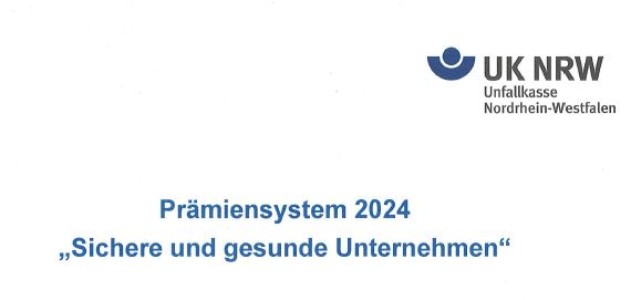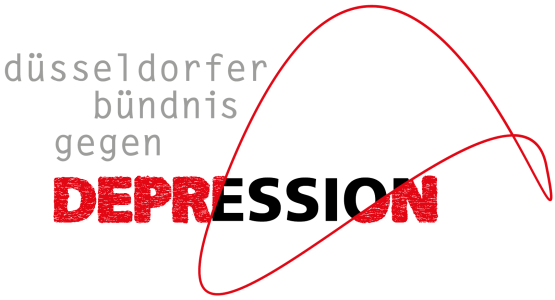Antipsychotische Polypharmazie und Therapieprädiktion
Forschungsschwerpunkte
Antipsychotische Polypharmazie:
Viele Patienten mit Schizophrenie, bei denen eine Therapie mit einem Medikament nicht ausreichend hilft, erhalten in der Routineversorgung mehrere antipsychotische Medikamente gleichzeitig (zwischen 30 und 50 %). Es existieren bisher jedoch keine ausreichenden Belege für eine erhöhte Wirksamkeit einer Kombinationstherapie. Der Qualitätsindikator „Antipsychotische Polypharmazie“ wird zudem vom GBA und der DGPPN zur sektorübergreifenden Erfassung der Behandlungsqualität empfohlen.
Ziel der Forschung ist es, potentielle Vorteile antipsychotischer Kombinationstherapie zu überprüfen und die Lücke zwischen gängiger Therapiepraxis und evidenzbasierten Empfehlungen zu verkleinern.
Therapieprädiktion:
Ziel ist es, Marker für ein therapeutisches Ansprechen von antipsychotischer Therapie zu finden.
Laufende Projekte
- Validation of blood transcript markers potentially indicative of a positive pharmacotherapy response in Schizophrenie: Results of the COMBINE-Study
- Identifying Differential Predictors for Treatment Response to Amisulpride and Olanzapine Combination Treatment versus each Monotherapy in Acutely Ill Patients with Schizophrenia: Results of the COMBINE-Study
- Relationship between weight gain and subjective wellbeing and compliance while taking antipsychotics: Results of the COMBINE-Study
- Genetic markers of therapeutic response in antipsychotic combination treatment: Results of the COMBINE-Study
Abgeschlossene Projekte
- COMBINE - Amisulpride and olanzapine combination treatment versus each monotherapy in acutely ill patients with schizophrenia in Germany (COMBINE): a double-blind randomised controlled trial
- EULAST – European Long-acting Antipsychotics in Schizophrenia Trial
- PRONIA – Personalised prognostic tools for early psychosis management
- Qualitätsindikator Antipsychotische Polypharmazie – Institut für Versorgungsforschung des LVR
Publikationen
- Winter-van Rossum I, Weiser M, Galderisi S, Leucht S, Bitter I, Glenthøj B, et al. Efficacy of oral versus long-acting antipsychotic treatment in patients with early-phase schizophrenia in Europe and Israel: a large-scale, open-label, randomised trial (EULAST). The lancet Psychiatry. 2023.
- Schmidt-Kraepelin C, Feyerabend S, Engelke C, Riesbeck M, Meisenzahl-Lechner M, Verde PE, et al. Amisulpride and olanzapine combination treatment versus each monotherapy in acutely ill patients with schizophrenia in Germany (COMBINE): a double-blind randomised controlled trial. The Lancet Psychiatry. 2022;9(4):291-306.
- Penzel N, Sanfelici R, Antonucci LA, Betz LT, Dwyer D, Ruef A, et al. Pattern of predictive features of continued cannabis use in patients with recent-onset psychosis and clinical high-risk for psychosis. Schizophrenia (Heidelb). 2022;8(1):19.
- Heres S, Cordes J, Feyerabend S, Schmidt-Kraepelin C, Musil R, Riedel M, et al. Changing the Antipsychotic in Early Nonimprovers to Amisulpride or Olanzapine: Randomized, Double-Blind Trial in Patients With Schizophrenia. Schizophr Bull. 2022;48(6):1273-83.
- Dwyer DB, Buciuman MO, Ruef A, Kambeitz J, Sen Dong M, Stinson C, et al. Clinical, Brain, and Multilevel Clustering in Early Psychosis and Affective Stages. JAMA psychiatry. 2022;79(7):677-89.
- Wenzel J, Haas SS, Dwyer DB, Ruef A, Oeztuerk OF, Antonucci LA, et al. Cognitive subtypes in recent onset psychosis: distinct neurobiological fingerprints? Neuropsychopharmacology. 2021;46(8):1475-83.
- Schmidt-Kraepelin C, Meisenzahl-Lechner E, Kujovic M, Cordes J, Engelke C, Riesbeck M, et al. Antipsychotische Polypharmazie in der Behandlung von Patientinnen und Patienten mit Schizophrenie am Beispiel von neun psychiatrischen Fachkliniken des Landschaftsverbandes Rheinland. Psychiatrische Praxis. 2021;48(5):250-7.
- Penzel N, Antonucci LA, Betz LT, Sanfelici R, Weiske J, Pogarell O, et al. Association between age of cannabis initiation and gray matter covariance networks in recent onset psychosis. Neuropsychopharmacology. 2021;46(8):1484-93.
- Koutsouleris N, Dwyer DB, Degenhardt F, Maj C, Urquijo-Castro MF, Sanfelici R, et al. Multimodal Machine Learning Workflows for Prediction of Psychosis in Patients With Clinical High-Risk Syndromes and Recent-Onset Depression. JAMA psychiatry. 2021;78(2):195-209.
- Schmidt-Kraepelin C, Feyerabend S, Engelke C, Riesbeck M, Meisenzahl-Lechner E, Gaebel W, et al. A randomized double-blind controlled trial to assess the benefits of amisulpride and olanzapine combination treatment versus each monotherapy in acutely ill schizophrenia patients (COMBINE): methods and design. Eur Arch Psychiatry Clin Neurosci. 2020;270(1):83-94.
- Cordes J, Woite M, Engelke C, Regenbrecht G, Kahl KG, Schmidt-Kraepelin C, et al. Hormone replacement therapy with L-thyroxine promotes working memory and concentration in thyroidectomized female patients after differentiated thyroid carcinoma. Int J Psychiatry Med. 2020;55(2):114-22.
- Toto S, Grohmann R, Bleich S, Frieling H, Maier HB, Greil W, et al. Psychopharmacological Treatment of Schizophrenia Over Time in 30 908 Inpatients: Data From the AMSP Study. The international journal of neuropsychopharmacology / official scientific journal of the Collegium Internationale Neuropsychopharmacologicum (CINP). 2019;22(9):560-73.
- Kamp D, Engelke C, Wobrock T, Wolwer W, Winterer G, Schmidt-Kraepelin C, et al. Left prefrontal high-frequency rTMS may improve movement disorder in schizophrenia patients with predominant negative symptoms - A secondary analysis of a sham-controlled, randomized multicenter trial. Schizophr Res. 2019;204:445-7.
- Engelke C, Cordes J, Kahl KG, Schmidt-Kraepelin C. Attitudes Toward Long-Term Medication Use-A Comparison Between Concerned Populations and a Sample From the German General Population: An Example of Real World Evidence. J Clin Psychopharmacol. 2019;39(4):357-61.
- Schmidt-Kraepelin C, Engelke C, Kahl KG, Cordes J. Attitudes Concerning Antipsychotic Depot Medication in the German General Population: A Representative Telephone Survey. J Clin Psychopharmacol. 2018;38(6):612-7.
- Schmidt-Kraepelin C, Horstkotter E, Zielasek J, Otten M, Cordes J. [Antidepressive Combination Treatment in Patients with Severe Depressive Episode: The Practice of Prescription in a Clinical Sample 2012]. Psychiatrische Praxis. 2017;44(5):274-8.
- Cordes J, Bechdolf A, Engelke C, Kahl KG, Balijepalli C, Losch C, et al. Prevalence of metabolic syndrome in female and male patients at risk of psychosis. Schizophr Res. 2017;181:38-42.
- Cordes J, Thunker J, Regenbrecht G, Zielasek J, Correll CU, Schmidt-Kraepelin C, et al. Can an early weight management program (WMP) prevent olanzapine (OLZ)-induced disturbances in body weight, blood glucose and lipid metabolism? Twenty-four- and 48-week results from a 6-month randomized trial. The world journal of biological psychiatry : the official journal of the World Federation of Societies of Biological Psychiatry. 2014;15(3):229-41.
- Schmidt-Kraepelin C, Puschner B, Loos S, Janssen B. Antipsychotische Polypharmazie bei Patienten mit Schizophrenie und hoher Versorgungsinanspruchnahme. Psychiatrische Praxis. 2013;40(7):380-4.
- Janssen B, van Brederode M, Kitzig F, Schmidt-Kraepelin C, Ohm S, Gaebel W. [Benchmarking in psychiatric acute care--a demonstration project in a hospitals network]. Zeitschrift fur Evidenz, Fortbildung und Qualitat im Gesundheitswesen. 2011;105(5):371-5.
- Cordes J, Kahl KG, Werner C, Henning U, Regenbrecht G, Larisch R, et al. Clomipramine-induced serum prolactin as a marker for serotonin and dopamine turnover: results of an open label study. Eur Arch Psychiatry Clin Neurosci. 2011;261(8):567-73.
- Schmidt-Kraepelin C, Janssen B, Gaebel W. Prevention of rehospitalization in schizophrenia: results of an integrated care project in Germany. Eur Arch Psychiatry Clin Neurosci. 2009;259 Suppl 2:S205-12.
- Markela-Lerenc J, Schmidt-Kraepelin C, Roesch-Ely D, Mundt C, Weisbrod M, Kaiser S. Stroop interference effect in schizophrenic patients: an electrophysiological approach. Int J Psychophysiol. 2009;71(3):248-57.
- Cordes J, Falkai P, Guse B, Hasan A, Schneider-Axmann T, Arends M, et al. Repetitive transcranial magnetic stimulation for the treatment of negative symptoms in residual schizophrenia: rationale and design of a sham-controlled, randomized multicenter study. Eur Arch Psychiatry Clin Neurosci. 2009;259 Suppl 2:S189-97.
Team
Dipl.-Psych. Mathias Riesbeck
zurück zur Forschung











